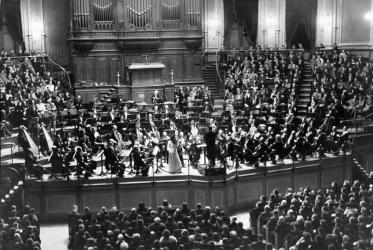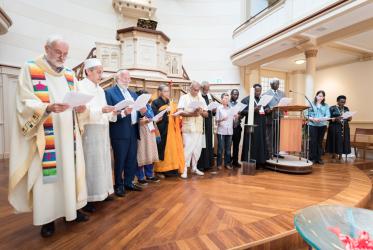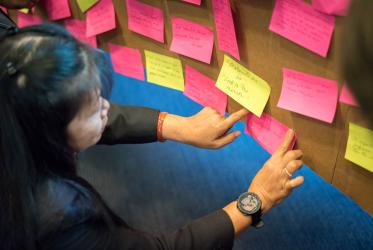Displaying 21 - 38 of 38
21 August 2018
What difference does dressing in black make?
02 August 2018
Working toward an AIDS-free generation
26 July 2018
Building bridges of faith in the HIV response
25 July 2018
Building Bridges in the global HIV response
25 July 2018
Creating a better future for Syrian-Armenian youth
29 March 2018
Common prayer in Geneva responds to acts of violence
16 November 2015
“European solidarity must be strengthened”
29 October 2015
WCC urges responsibility for and support to the refugees in Europe
04 September 2015
Religious leaders urge a ban on fully autonomous weapons
02 April 2015
The WCC: Seventy-five years in Geneva, 1939-2014
04 July 2014












